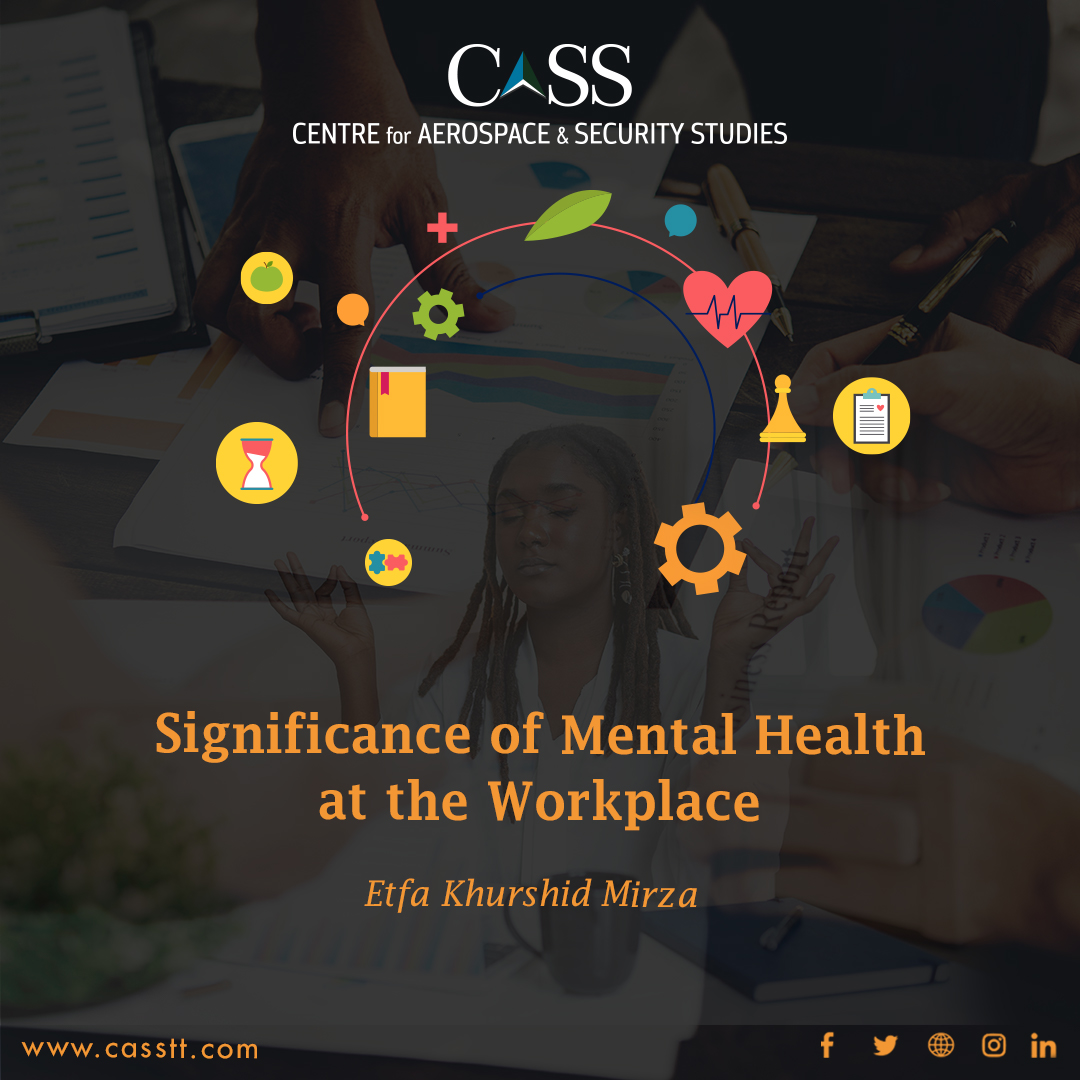According to a study, the average human being spends around 90,000 hours of life at work. Hence, it is important to understand how the work environment impacts human beings. On the positive side, one gets a sense of accomplishment and fulfilment. On the negative side, it can also lead to stress and hypertension. It is important to be aware of the negative impacts and how to deal with them accordingly to increase productivity. 10th October is celebrated as ‘World Mental Health Day’ to raise awareness, educate people and advocate mental health. This year’s theme was ‘make mental health for all a global priority’. Whether you belong to any age group or to any profession, or even stay at home or a student, mental health is important.
Mental health and physical health are closely related to each other, if you are not physically fit, you will experience highs and lows in your mental health and vice versa. According to medical practitioners, mental illnesses, in general, are thought to be caused by a variety of genetic or biological, environmental and psychological factors. Skipping genetic factors that can only be treated by medication and psychotherapy, let’s move straight to the factors that are most common when we refer to mental health at the workplace.
An important factor contributing to mental health degradation is work overload. As workload increases, one’s sense of peace begins to decrease. Pressure from colleagues and management also rises if you are unable to do perform tasks on time. Many people find it difficult to cope with this pressure, which causes anxiety and stress. On the other side, if the nature of the job is not challenging enough, nor brings out the best in an employee, or does not promote professional development, it can also cause stagnation and a decline in interest in the work leading to gradual degradation in mental health. Other elements that may impair one’s mental health include fierce competition among peers; comparing accomplishments to those of others and then devaluing oneself; and poor emotional stability. The setting in which one works is just as crucial as the work itself in affecting mental health. Other elements to consider include negative energy, a lack of enthusiasm, unwarranted criticism, and inadequate sleep.
Now the question is, how to deal with such a situation? How to keep oneself sane when everything appears to be going wrong. Dignity and respect for people and their job are important factors in maintaining good mental health, and it is the responsibility of an organisation to provide and maintain an environment of respect and trust at all levels. But apart from the role of the employer, one needs to learn easy tips and tricks to relax one’s mind quickly. Some of them are discussed below.
An active functioning brain requires energy as fuel. Don’t skimp on meals, particularly breakfast. One survey found that one in four adults typically skip breakfast four days per week. Statistics will not be much different in a country like Pakistan. A successful day at work starts with a healthy morning routine. Plan your meals according to your schedule; for instance, if you work a desk job all day, eat light meals; if you work outside, eat wholesome, substantial meals. Keeping yourself hydrated should be the next item on your list since 75% of brain mass constitutes water. At least half a glass of water should be consumed every hour. If you anticipate forgetting, set a water reminder on your phone.
One of the main reasons one can get frustrated in the morning or easily stressed is that we usually don’t get enough sleep or rest the night before. To have a productive day, take a nap for about seven to eight hours. Wake up early in the morning with a few minutes of breathing exercises daily. Even if feeling worried and overworked, we can still do this at our desk because it will eventually help us relax and stop overthinking. If you have a lot of work and are unsure of how you will do it, take a deep breath and relax. Avoid social media and mindless scrolling during working hours to maintain focus. This will help you maintain focus.
Change starts with oneself – come to work with a positive mindset if you want your office environment to be healthy and productive. Be the kind of person who people enjoy spending time with. Organise yourself in order to manage your time and deadlines better. Peers should encourage co-workers who may be experiencing distress or mental health problems to get professional help. Managers or bosses should promote healthy competition and avoid comparing one person to another because you never know what struggles they may be going through. Instead of leaping to assumptions and penalising someone immediately if they are late or short on deadlines, speak to them, offer assistance, allow them some time, and then see what happens. Being appreciative can also help employee morale, especially if they are having mental health problems.
Everyone has experiences in life that can contribute to mental health issues. If COVID-19 taught us anything, it was that we all need a healthy work-life balance, whether as an employer or employee. Let us prioritise this issue and take baby steps toward improvement today. After all, we are ultimately responsible for our own mental health.
The writer is a Research Assistant at the Centre for Aerospace & Security Studies (CASS), Islamabad, Pakistan. She can be reached at: cass.thinkers@casstt.com




